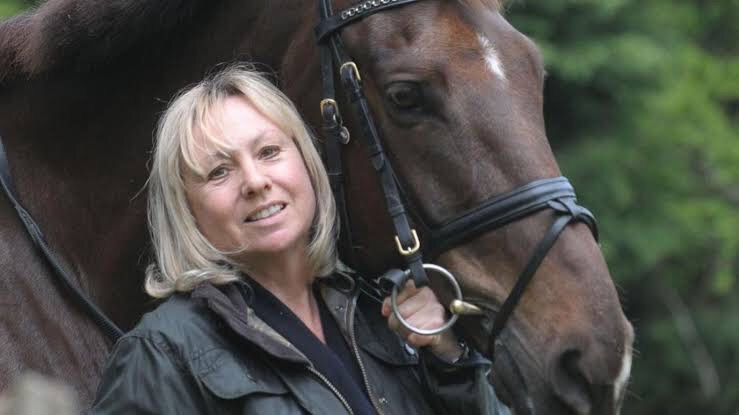“I felt a stabbing pain. It was a huge blow”.
Karen Wiltshire was whipped by a rival jockey during a race.
The trainer, who dismounted and noticed that her pants were torn, said, “These pants are not made for a women’s ass.”
It was the 1970s and Wiltshire was trying to break new ground as a woman in the then male-dominated world of horse racing. Her suffering is not over yet.
When she returned to Warwick’s locker room, another man from the same competition jumped over the partition and sexually assaulted her.
“He’s groping and trying to kiss me,” recalls Wiltshire, “Luckily I was doing judo at a convent school and I managed to catch him.”
Why didn’t she complain and move on?
“Times have completely changed since the 1970s when we couldn’t do much,” she said.
“You didn’t want to attract attention because it could affect your career. “I just wanted to compete, so I had to stop it.”
Although she was ignored at the races and subjected to verbal abuse and ridicule by other stable staff, she beat Goldstone at Salisbury in 1978 at the age of 22, becoming the first professional jockey to win a British paying race.
Her fight against feminism is detailed in her new autobiography, No Place for a Girl.
Much progress has been made in recent years. Hollie Doyle is one of the best pay jockeys in Britain, while Irish rider Rachel Blackmore became the first woman to win the Grand National overjumping.
Wiltshire believes more needs to be done to increase women’s representation in some of the top competitions, but racing remains one of the few sports where it regularly competes on an equal footing with men.
When trainer Bill Wightman gave her a chance in the 1970s, he wanted to make sure he wouldn’t stand out from the competition. At first, the owner may frown on the fact that she is a jockey.
“He told me to cut my hair like a boy without make-up. “She was so thin that her body looked like nothing had changed.”
Jockeys were identified by initials like L Piggott, for example, and competitors and riders don’t know a woman is riding them until she arrives. Unlike Warwick, most changing rooms at the time did not have a women-only area.
“The kids didn’t know until I took off my bra and pants. “Everyone looked at me in shock,” she said.
“I wasn’t complaining because I just wanted to ride.”
The Wiltshire highlight came on 14th September 1978 when they won 9-1 by two and a half lengths over The Goldstone.
Unlike Blackmore’s victory at Aintree, which was broadcast around the world, there was little fanfare at the time.
The only report she remembers is six sentences from Sporting Life, which mentions her first win, not the first win by a professional woman.
“It was hidden. “I don’t think they wanted to promote women in sports like they do now.” she said.
The following year she ended her career after 18 races, including a second and three thirds at Epsom.
Despite the odds, Wiltshire said she was not surprised by recent incidents of gender discrimination in British racing. Robbie Dunn was banned for 10 months two years ago for abusing her current rider, Bryony Frost. In France.
“She continued to be brave. “I hope it doesn’t interfere with her ability to work with the coaches,” she said.
Last year, the British Horse Racing Authority (BHA) published a strategy to improve safety and welfare, which revealed more than 350 safety and human health issues. Wellness in sports. He did not say how many cases were substantiated, but said about half of the reports involved sexual assault or threats.
Statistics show that while three-quarters of the graduates of the two major racing schools are women, only 15% of professional jockeys are women.
“I thought 30% of professional jockeys would be women now, but you don’t see many of them in big races like the Derby,” said Wiltshire.
“I would like to offer an extra 5 to 10 percent bonus to trainers who use female jockeys in the classics.”
Wiltshire, who now works as a fitness instructor at her own gym in Hampshire, says she is amazed and proud of her adult daughter Lara’s career, riding against greats such as Lester Piggott, Willie Carson, Pat Eddery and Walter Swinburne.
“The first win proved that it is possible. Now a lot of people want to see women competing and people realize that they have similar skills,” she said.


























































